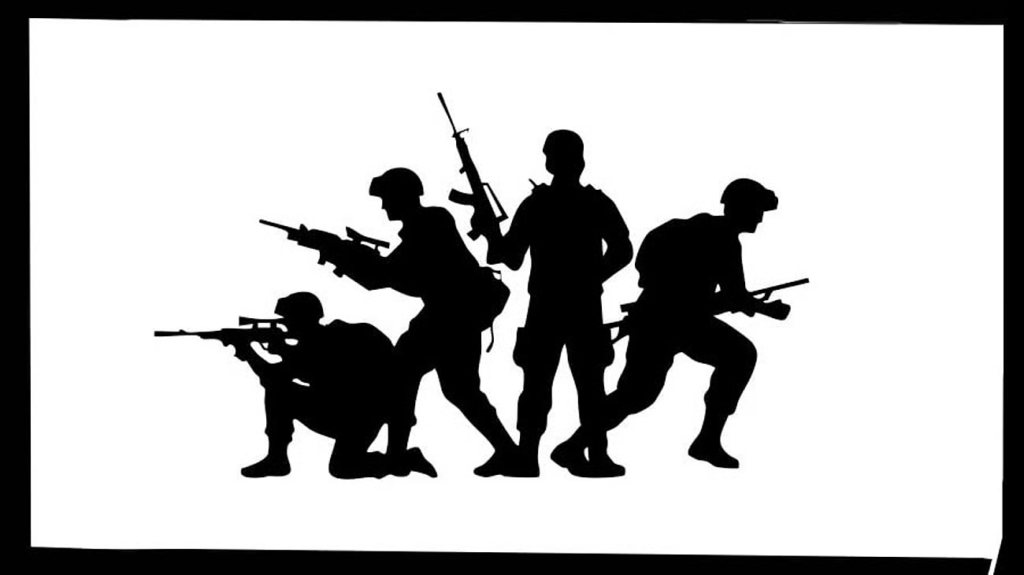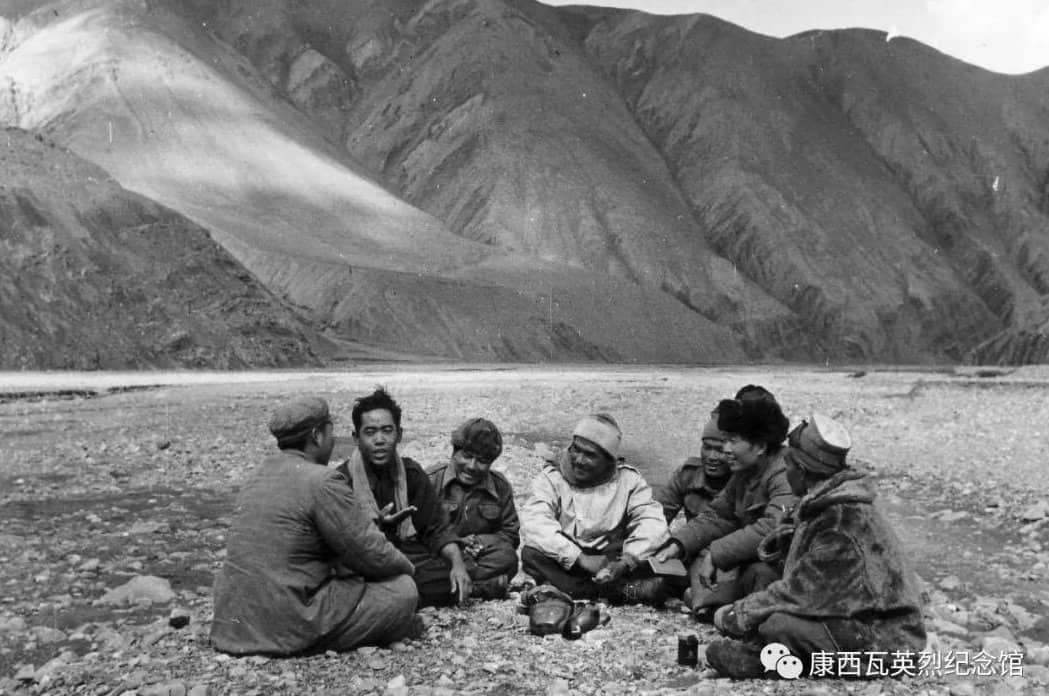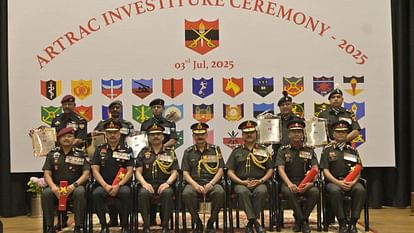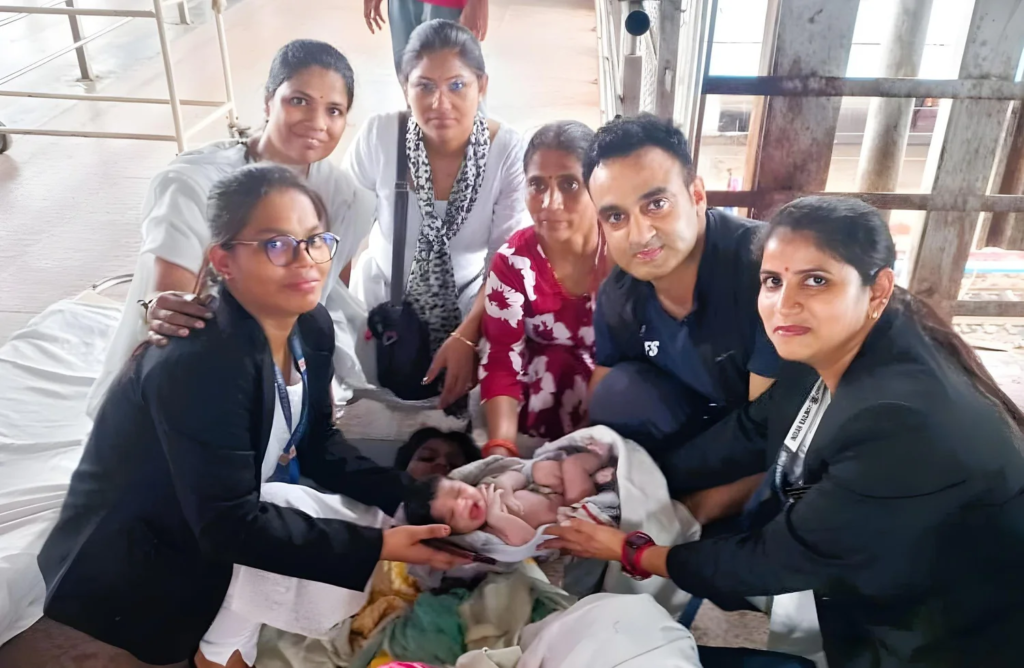







The recent decision of the Delhi High Court, upholding the dismissal of Lt Samuel Kamalesan, has ignited a debate on the role of religion in the Indian Army. Lt Kamalesan refused to participate in regimental religious parades, stating his religious f…
Read more at: https://www.deccanherald.com/opinion/in-the-indian-army-faith-fosters-a-higher-cause-3613282

Baffling as it may seem, a Pakistani soldier who was refused a grave during the 1999 Kargil Waris now being showered with glory in the Islamic Republic. Pakistan’s Army Chief Asim Munir, along with the entire military brass, on Saturday paid tribute to Kargil “hero” Captain Karnal Sher Khan on the 26th anniversary of his martyrdom. While Pakistan initially disowned Sher Khan and refused to take his body from Indian soil, it was an Indian Army officer whose letter, tucked in the Pakistani soldier’s pocket, revealed his heroics.
The letter played a crucial role in Sher Khan being awarded the Nishan-e-Haider in 2000, posthumously.
Brigadier MPS Bajwa, now retired, was leading Indian forces to retake Tiger Hill from Pakistani occupation during the Kargil War of 1999. He was so moved by the 29-year-old Khan’s courage that he wrote a letter to the Pakistani government and placed it in the fallen soldier’s pocket before his body was returned.
The gesture by Brigadier Bajwa (retired) stands in stark contrast to Pakistan’s initial refusal to claim Khan’s body, in an apparent attempt to conceal its military involvement in the Kargil War, as noted in a 1999 Indian press release.
During the Kargil War, just like in 1947 and 1965, Pakistan initially denied its army’s involvement, claiming, instead, that the intruders were “mujahideen”.
On Saturday, the Pakistani Army and the government marked the 26th martyrdom anniversary of Captain Karnal Sher Khan with military honours at his tomb in Swabi, Khyber Pakhtunkhwa.
Field Marshal Munir, alongside senior military officials and Sher Khan’s family, paid tribute to the Kargil war hero who was posthumously awarded the Nishan-e-Haider.
“During the Kargil conflict in 1999, Captain Karnal Sher Khan Shaheed, a symbol of unwavering courage and patriotism, sacrificed his life while defending the motherland with unparalleled valour. He remains an eternal source of inspiration for the Armed Forces and the nation,” Pakistan’s DG-ISPR posted on X on Munir’s visit to Khan’s village.
During the 1999 Kargil War, Karnal Sher Khan of the Pakistani Army served as a Captain with the 12th Northern Light Infantry. At 17,000 feet in Gultari, Khan was leading his unit when the Indian Army launched a fierce counterattack to take over Tiger Hill, a strategic post.
Two Indian Army battalions, with machine guns and artillery support, launched a fierce assault to claim the strategic heights, to push back the intruders in what came to be one of the bloodiest battles of the Kargil War.
Captain Sher Khan’s unit was heavily outnumbered.
After being fatally wounded in machine-gun fire during close combat, Khan lost his life on July 5.
His bravery earned him the Nishan-e-Haider, Pakistan’s highest military honour, posthumously.
After the Indian Army captured Tiger Hill, Captain Sher Khan’s body was recovered and identified through documents he was carrying. But it wasn’t until Indian Brigadier Bajwa acknowledged his bravery that Pakistan recognised him and posthumously awarded him the Nishan-e-Haider.
“Yes, Captain Karnal Sher Khan of 9 NLI (Pakistan) fought against my unit (8 SIKH) at Tiger Hill, but Pakistan refused to take his body. The appreciation of his bravery was written by me and paper inserted in his pocket. Subsequently he was given the highest gallantry award,” Brigadier Bajwa (retired) wrote on X in 2019.

Pakistan, in fact, had initially refused to accept his body, revealed an Indian press release from 1999.
“The callousness and inhumanity with which they [the Pakistani forces] are persisting in this fiction is demonstrated in the current matter concerning the bodies of two officers of the Pakistan Army who had died in action on the Indian side of the Line of Control in Kargil. The body of Captain Imtiaz Malik of 165 Mortar Regiment was found at Point 4875 in the Mushkoh sub-sector. The body of Captain Karnal Sher of 12 Northern Light Infantry was found on Tiger Hill in the Dras sub-sector. The identities of these two officers were established by correspondence found on their persons. Both bodies are in the possession of the Indian Army authorities,” the Indian Government said on July 15, 1999.
“The above information was conveyed to the Pakistani government on July 12. We informed the Pakistani authorities that we would like to hand over the bodies to them. We did not receive any response,” the Indian government added in the press release.
India’s Brigadier MPS Bajwa, who was struck by Khan’s bravery, wrote a citation praising his gallantry and placed it in his pocket, ensuring his valour was recognised.
Later after the International Committee of the Red Cross (ICRC) told New Delhi on July 13 that Islamabad had asked the humanitarian-support body to talk to its Indian counterpart over the bodies of the two officers about which they had heard.
Only after international scrutiny and reports of Pakistan disowning its heroes spread beyond borders did Islamabad accept Captain Karnal Sher Khan’s body, before posthumously awarding him the Nishan-e-Haider in 2000.
Twenty-five-years ago, Captain Karnal Sher Khan’s own country refused to accept his body in its bid to conceal military involvement in the Kargil War. Now, decades later, Army Chief Asim Munir is glorifying his sacrifice, at a time when he’s seen consolidating power, more so through self-promotion and strategic appearances. If not pure perception-building, this revival of Sher Khan’s legacy, one even an Indian officer acknowledged, certainly serves a timely purpose.
– Ends

Most of us are aware of the post called Galwan, but few know the details of its establishment in 1962. New Delhi was eager to establish a forward post opposite the Chinese post of Samzungling. However, Lieutenant General Daulet Singh, who led the Shimla-based Western Command responsible for Jammu and Kashmir and Ladakh, was not happy with the decision to establish a post so isolated, deep in a valley with no land route.

In mid-June 1962, the orders were made clear to establish a post. The orders reached the 114 Brigade based in Leh. Brigadier Rawind Singh Grewal, MC, had two regular infantry battalions and two J&K Militia battalions under his command. The 14 J&K Militia was looking after the Northern Sector and the 7 J&K Militia was looking after the Southern Sector.
The Army Training Command (ARTRAC) on Thursday announced to train all Indian Army soldiers with working of drones by the year 2027. The announcement was made by Lieutenant General Devendra Sharma, General Officer Commanding-in-Chief of ARTRAC, while addressing officers, awardees, and guests at the ARTRAC Investiture Ceremony 2025, held in Shimla on Thursday.

Interacting with the media persons, Lt Gen Sharma said, “Indian Army’s performance in Operation Sindoor had demonstrated remarkable capabilities, especially in the use of drones. Drawing on those insights, ARTRAC has initiated a roadmap that will make drone operation an integral part of every soldier’s training.”
“In Operation Sindoor, the Indian Army showcased exceptional capability, particularly through the deployment of drones. Learning from that, we have decided that by 2027, every Indian soldier will be trained in drone operations. Drones will become the ‘third arm’ of the modern Indian soldier,” he said.
Lt Gen Sharma said that ARTRAC had identified 33 niche technologies—including drones, cyber warfare, battlefield artificial intelligence, and electronic warfare systems—for incorporation into army training. To institutionalise these capabilities, 14 centres of expertise have been established across various training institutions. He said that ARTRAC has set a goal for the complete absorption of these technologies by 2030, backed by an investment of ₹390 crore over the next five years in infrastructure, research and development, and simulation-based training systems.
जिला सोलन के डगशाई कैंट एरिया में तैनात एक लेफ्टिनेंट कर्नल के दस्तावेज जांच में जाली पाए गए हैं। सेना की ओर से उनके खिलाफ धर्मपुर पुलिस थाना में शिकायत दर्ज करवाई गई है। पढ़ें पूरी खबर…
हिमाचल प्रदेश फटाफट: पढ़ें सभी खबरें 60s में

एफआईआर (सांकेतिक तस्वीर) – फोटो : अमर उजाला नेटवर्क
डगशाई कैंट एरिया में तैनात एक लेफ्टिनेंट कर्नल के दस्तावेज जांच में जाली पाए गए हैं। सेना की ओर से लेफ्टिनेंट कर्नल के खिलाफ विभागीय जांच बिठाई गई। इसमें उनके सभी तरह के दस्तावेजों की जांच की गई तो इनमें से कई फर्जी पाए गए। दस्तावेज जाली पाए जाने पर अब सेना की ओर से उनके खिलाफ धर्मपुर पुलिस थाना में शिकायत दर्ज करवाई गई है। शिकायत पर पुलिस ने धोखाधड़ी का केस दर्ज कर लेफ्टिनेंट कर्नल के खिलाफ जांच शुरू कर दी है। सेना के एक अधिकारी जाधव एनएस ने धर्मपुर पुलिस थाना में आरोपी के खिलाफ जाली दस्तावेजों की शिकायत दी है।Trending शिकायत में बताया गया है कि आरोपी के खिलाफ वर्ष 2023 से विभागीय जांच चल रही है। 23 अगस्त, 2023 को आरोपी के कब्जे से 12 बोर की बंदूक और कथित तौर पर सरकारी अधिकारियों की ओर से जारी कई दस्तावेज पाए गए। जांच में लेफ्टिनेंट कर्नल की तस्वीर वाला ड्राइविंग लाइसेंस, राशन कार्ड, आधार कार्ड, पैन कार्ड जाली पाए गए। दस्तावेजों पर तस्वीर तो आरोपी की है, जबकि दस्तावेज किसी अन्य व्यक्ति के नाम पर हैं। सोलन के पुलिस अधीक्षक गौरव सिंह ने बताया कि डगशाई में तैनात एक लेफ्टिनेंट कर्नल के खिलाफ सेना अधिकारी ने जाली दस्तावेजों की शिकायत दी है। इसके आधार पर पुलिस ने आरोपी पर धोखाधड़ी का मामला दर्ज कर लिया है। मामले की पूरी जांच होने के बाद ही पता चल पाएगा आरोपी ने ऐसा किस मकसद से किया।
वीरवार को आरट्रैक के अलंकरण समारोह में आरट्रैक के जनरल ऑफिसर कमांडिंग-इन-चीफ लेफ्टिनेंट जनरल देवेंद्र शर्मा ने कहा कि भारतीय सेना के जवान राइफल की तरह अब ड्रोन चलाने में भी पारंगत होंगे। पढ़ें पूरी खबर…
हिमाचल प्रदेश फटाफट: पढ़ें सभी खबरें 60s में

सेना प्रशिक्षण कमान में आयोजित अलंकरण समारोह के दौरान सेना के अधिकारी – फोटो : अमर उजाला नेटवर्क
भारतीय सेना के जवान राइफल की तरह अब ड्रोन चलाने में भी पारंगत होंगे। ऑपरेशन सिंदूर से मिली सीख के बाद आरट्रैक (आर्मी ट्रेनिंग कमांड) सैनिकों को 2027 तक विशेष ड्रोन प्रशिक्षण देगा। आरट्रैक के जनरल ऑफिसर कमांडिंग-इन-चीफ लेफ्टिनेंट जनरल देवेंद्र शर्मा ने वीरवार को आरट्रैक के अलंकरण समारोह में यह बात कही। कहा कि आरट्रैक ने 33 प्रमुख तकनीकों की पहचान की है, जिन्हें प्रशिक्षण पाठ्यक्रम में शामिल किया जाएगा।Trending Videoshttps://videocdn.amarujala.com/trending-player#mute&is_amp
अर्मेनिया-अजरबैजान, रूस-यूक्रेन और इजराइल-हमास के बीच युद्ध में तकनीक खासकर ड्रोन का निर्णायक उपयोग हुआ है। ऑपरेशन सिंदूर से यह सिद्ध हो गया कि भारतीय सेना भी आधुनिक तकनीक को शीघ्रता से अपना सकती है। आरट्रैक का सेंटर फॉर आर्मी लेसंस लर्न्ड इन अभियानों का अध्ययन कर प्रशिक्षण प्रणाली को लगातार बेहतर कर रहा है। आरट्रैक भारतीय सेना के डिकेड ऑफ ट्रांसफॉर्मेशन में केंद्रीय भूमिका निभा रहा है।विज्ञापनhttps://e1e9ca22900027a6e24bb42a9e2c1adf.safeframe.googlesyndication.com/safeframe/1-0-45/html/container.html?n=0
शर्मा ने कहा कि वर्ष 2024–25 को सेना ने आधुनिक तकनीकी समावेश का वर्ष घोषित किया है। ड्रोन युद्ध, साइबर क्षमताएं, बैटलफील्ड एआई और इलेक्ट्रॉनिक वॉरफेयर को रणनीतिक तौर पर प्रशिक्षण में शामिल किया गया है। इसके लिए प्रशिक्षण संस्थानों में 14 विशेषज्ञता केंद्र स्थापित किए गए हैं। 2030 तक इन सभी तकनीकों को पूरी तरह प्रशिक्षण में शामिल करने का लक्ष्य है। इसके लिए अगले पांच वर्षों में 390 करोड़ रुपये का निवेश होगा।
महिलाओं को हर मोर्चे पर समान अवसर
देवेंद्र शर्मा ने कहा कि आरट्रैक महिलाओं को हर मोर्चे पर समान अवसर देने के लिए वचनबद्ध है। मौजूदा समय में 1571 महिलाएं सेवाएं दे रही हैं, इनमें से कई महिलाएं महत्वपूर्ण पदों पर कार्यरत हैं। लैंगिक संवेदनशीलता प्रशिक्षण को पाठ्यक्रम का हिस्सा बनाया गया है।
12,000 और सैनिक 21 नई तकनीकों में बनेंगे दक्ष
2024–25 में अब तक 18,000 जवानों को 22 तकनीकों में प्रशिक्षित किया गया है, 2025–26 में 12,000 अन्य सैनिकों को 21 नई तकनीकों में प्रशिक्षण देने का लक्ष्य है। आरट्रैक पूरे देश की भागीदारी के सिद्धांत पर कार्य कर रहा है। थिंक टैंक, विश्वविद्यालयों, अनुसंधान संस्थानों और स्टार्टअप के साथ समझौता ज्ञापनों के माध्यम से तकनीक को सेना में शामिल किया जा रहा है।

In the hustle and bustle of life, where chaos often reigns, there are moments that remind us of the extraordinary power of human compassion and quick thinking. One such moment unfolded on July 5, 2025, at the Virangana Laxmibai Jhansi Railway Station in Uttar Pradesh, India, where Major Rohit Bachwala, a 31-year-old Indian Army Medical Corps officer, became a beacon of hope for a woman in distress.

With nothing more than a pocket knife, hair clips, a dhoti, and his unwavering resolve, Major Rohit transformed a railway platform into a makeshift maternity ward, delivering a healthy baby girl and saving two lives in the process. His story is a testament to the indomitable spirit of service, courage, and humanity that inspires us all to rise above challenges and make a difference.

Major Rohit Bachwala, stationed at Jhansi Military Hospital, was on a month-long leave, awaiting his train to Hyderabad to reunite with his family. The son of a retired Indian Air Force skydiving instructor, Junior Warrant Officer B.R. Vinod, Major Rohit carries forward a proud legacy of service to the nation.
Trained to handle battlefield emergencies, he never imagined that his skills would be called upon in the midst of a crowded railway station. Yet, when he saw a pregnant woman, Ashwarfalak Quershi, writhing in severe labor pain on a footover bridge, he didn’t hesitate. As he later told PTI, “There was no time to waste. The mother and child were in a precarious condition, and every second mattered.”
The woman, traveling with her husband and child on the Panvel-Gorakhpur Express (train number 15066), had gone into unexpected labor. Her husband, Mohammad Zubair Quershi, had sent an SOS via the Rail Madad app, prompting railway staff to deboard the family at Jhansi station.
A female ticket-checking staff member was rushing the woman toward medical assistance in a wheelchair when Major Rohit intervened, recognizing the urgency of the situation. With no access to a proper operating theater, he relied on his training, instinct, and the limited resources at hand to perform an emergency delivery right there on the platform.
Also Read: Meet Sub Lieutenant Aastha Poonia: Indian Navy’s 1st Female Fighter Pilot
What makes Major Rohit’s act truly remarkable is his resourcefulness under pressure. With no medical equipment available, he improvised with a pocket knife to cut the umbilical cord, a hair clip to clamp it, and a dhoti to create a makeshift curtain for privacy.
Railway women staff, including Chief Ticketing Examiner Lili Kushwaha, stepped in to secure the area and provide gloves, ensuring basic hygiene and safety. Together, they created a small oasis of calm amidst the chaos of the station, allowing Major Rohit to focus on delivering the baby.
The result? A healthy baby girl and a stable mother, both of whom were promptly transported to a nearby hospital for further care.
Major Rohit’s ability to adapt and act decisively in such an unconventional setting is a powerful reminder that true heroes don’t wait for perfect conditions—they make do with what they have. His quick thinking turned ordinary objects into lifesaving tools, proving that resourcefulness and determination can overcome even the most daunting challenges.
The impact of Major Rohit’s actions extended far beyond the safe delivery of the baby. The railway staff, bystanders, and the woman’s family were left in awe of his selflessness. Mohammad Zubair Quershi expressed his gratitude, saying, “I’m immensely grateful to the army doctor and the women railway staff who helped us in the delivery.”
Lili Kushwaha, who assisted during the delivery, later visited the family at the hospital, bringing food and clothes for the newborn a touching gesture that amplified the spirit of humanity sparked by Major Rohit’s intervention.
The Indian Army and railway authorities were quick to praise Major Rohit’s heroism. The North Central Railway’s Jhansi Division noted that while their medical team was mobilized, Major Rohit’s swift response bridged a critical time gap, ensuring the safety of both mother and child.
Surgeon Vice Admiral Arti Sarin, Director General of the Armed Forces Medical Services, lauded his professionalism, calling it a “shining example of the military medical corps’ ethos of service beyond the battlefield.”
Posts on X (formerly Twitter) echoed this sentiment, with users hailing Major Rohit as a “hero” and an “angel in the hour of need.” One post read:
“A soldier on leave, a doctor on duty. Heartwarming gesture by Army Doctor Rohit Bachwala as he rushed to help a pregnant woman in labor… Kudos to Doctors of India.”
The outpouring of admiration reflects the profound impact of his actions, inspiring countless others to recognize the power of stepping up in a crisis.
Major Rohit’s story is more than just a tale of a successful emergency delivery—it’s a call to action for all of us. It reminds us that heroism isn’t confined to grand gestures or extraordinary circumstances; it lies in the willingness to act when others might hesitate.
As Major Rohit himself said, “As doctors, we must be prepared for emergencies at all times, even in transit. I consider it a blessing that I could help save two lives.”
His humility and sense of duty embody the finest qualities of the Indian Army: professionalism, bravery, and compassion.
This inspiring act also highlights the strength of community. The railway staff’s quick response, the female ticket checkers’ support, and the gratitude of the family all underscore the power of collective effort.
When individuals come together with a shared purpose, miracles happen—even on a busy railway platform.
Major Rohit Bachwala’s actions at Jhansi Railway Station are a powerful reminder that we all have the potential to make a difference, no matter where we are or what resources we have.
His story challenges us to ask:
What would we do in a moment of crisis? Would we step forward with courage, or would we wait for someone else to take charge?
Major Rohit didn’t wait. He saw a need, acted with precision, and left behind a legacy of hope and humanity.
Let his example inspire us to be ready—to act, to adapt, and to serve. Whether it’s lending a helping hand, using our skills to solve a problem, or simply showing kindness, we can all be heroes in our own way.
Major Rohit’s story proves that true greatness lies in the ability to turn an ordinary moment into an extraordinary one.
So, the next time you find yourself at a crossroads, remember the army doctor who turned a railway station into a place of miracles—and ask yourself:
“What can I do to make a difference today?”
Jai Hind!
New Delhi, Army Chief Gen Upendra Dwivedi on Monday commended a military officer for demonstrating exceptional professional acumen and selfless commitment beyond the call of duty.

On July 5, while proceeding on leave from Military Hospital, Jhansi, to his hometown in Hyderabad, Major Bachwala Rohit was involved in a critical medical intervention that “exemplified the highest standards of military service”, the Army said in a post on X.
“Displaying exemplary presence of mind and clinical skill, Major Rohit conducted an emergency delivery on the railway platform itself, using improvised resources including a towel, a knife and hair clips,” the Army said.
It also shared a photo of the woman whom he aided in the delivery after noticing she was in a state of “advanced labour”, along with him holding the baby at the railway platform.
“Honouring a selfless service beyond the call of Duty #GeneralUpendraDwivedi, #COAS, today commended Major Bachwala Rohit for demonstrating exceptional professional acumen and selfless commitment beyond the call of duty,” the Army said in the post.

As many as 1,000 earthen lamps were lit to commemorate the martyrdom day of Kargil War hero and Param Vir Chakra recipient Captain Vikram Batra, at the Sector 17 Plaza here today.
The city unit of BJP Yuva Morcha organised the programme to pay tribute to the martyr. Morcha in-charge Ramesh Sahor urged the youth to draw inspiration from such martyrs and take active part in nation-building.
Vikram dekh raha hai tu? Tu ne yahi pahadi jeeti thi”.
COL RAJESH ADHAU @rukwadsokaum flew straight from Congo to Drass on the balidan diwas of his dearest friend,compatriot & brother in arms CAPT VIKRAM BATRA,13JAKRIF,PVC.He climbed Pt.5140 today and remembered a
his teammates


The haul of gold medals included 14 in swimming, 12 in athletics, four each in archery and wrestling, three in boxing and one in taekwondo

A total of 21 BSF personnel had participated in six disciplines at the WP&FG. Photo: BSF
Border Security Force (BSF) personnel bagged 38 gold medals in the World Police and Fire Games – 2025 (WP&FG) held at Alabama in the US, with the force’s total medal tally being 73 including 21 silver and 14 bronze.
A total of 21 BSF personnel had participated in six disciplines at the WP&FG. About 8,500 competitors from 70 countries participated in the games this year. Personnel from other paramilitary and state police forces in India also participated in the games.
The haul of gold medals included 14 in swimming, 12 in athletics, four each in archery and wrestling, three in boxing and one in taekwondo. Silver medals included six each in swimming and athletics, two in archery and one in taekwondo, while the bronze included 11 in swimming and three in athletics.
Director General BSF, Daljit Singh Chaudhary, lauded the outstanding performance of BSF athletes and also congratulated the coaches and support staff for their relentless efforts and dedication for this success.
The WPFG is an Olympic-style competition with thousands of athletes representing first responders from different countries across the world. This includes law enforcement, firefighters, officers from corrections, probation, border protection, immigration and customs. The games are held biennially and typically have about 60 sports.
The games are governed by the California Police Athletic Federation (CPAF), the host city, which this year was Birmingham, and the WP&FG Board of Directors. The first edition of the WP&FG was held in 1985 in San Jose, California. Besides the US, the event has also been conducted in different countries.
The next edition of WP&FG is scheduled to be held at Perth in 2027, while India will host the event in 2017 in Gujarat.






















































